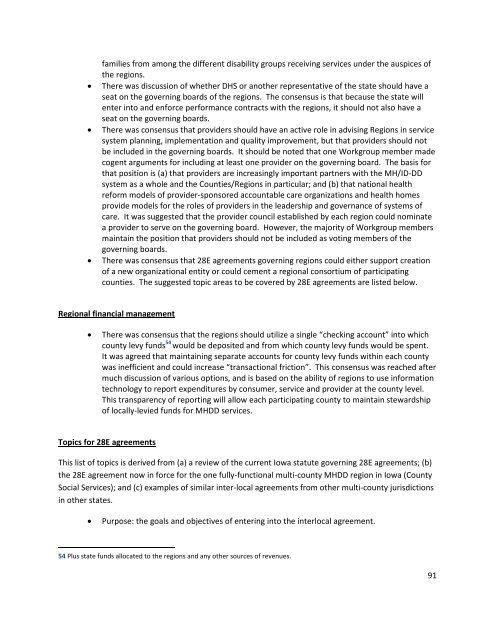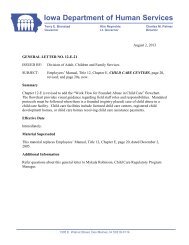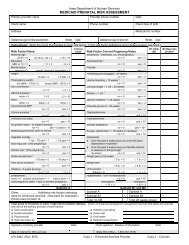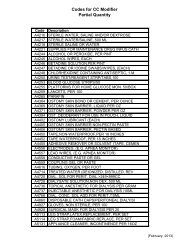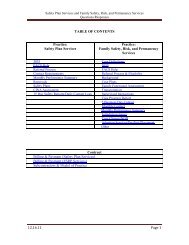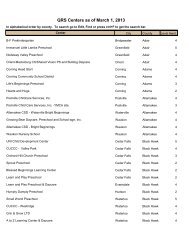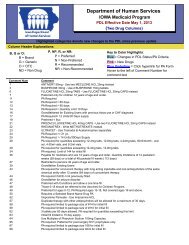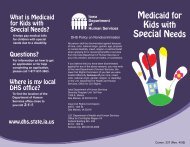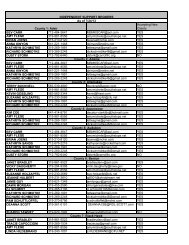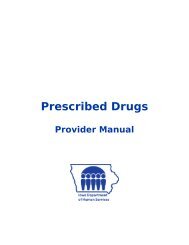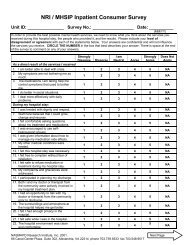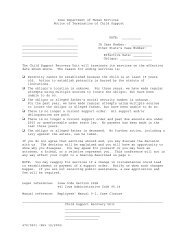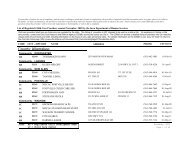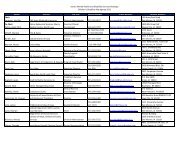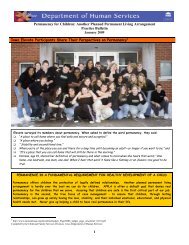Iowa Mental Health and Disability Services System Redesign Interim ...
Iowa Mental Health and Disability Services System Redesign Interim ...
Iowa Mental Health and Disability Services System Redesign Interim ...
- No tags were found...
You also want an ePaper? Increase the reach of your titles
YUMPU automatically turns print PDFs into web optimized ePapers that Google loves.
families from among the different disability groups receiving services under the auspices of<br />
the regions.<br />
• There was discussion of whether DHS or another representative of the state should have a<br />
seat on the governing boards of the regions. The consensus is that because the state will<br />
enter into <strong>and</strong> enforce performance contracts with the regions, it should not also have a<br />
seat on the governing boards.<br />
• There was consensus that providers should have an active role in advising Regions in service<br />
system planning, implementation <strong>and</strong> quality improvement, but that providers should not<br />
be included in the governing boards. It should be noted that one Workgroup member made<br />
cogent arguments for including at least one provider on the governing board. The basis for<br />
that position is (a) that providers are increasingly important partners with the MH/ID-DD<br />
system as a whole <strong>and</strong> the Counties/Regions in particular; <strong>and</strong> (b) that national health<br />
reform models of provider-sponsored accountable care organizations <strong>and</strong> health homes<br />
provide models for the roles of providers in the leadership <strong>and</strong> governance of systems of<br />
care. It was suggested that the provider council established by each region could nominate<br />
a provider to serve on the governing board. However, the majority of Workgroup members<br />
maintain the position that providers should not be included as voting members of the<br />
governing boards.<br />
• There was consensus that 28E agreements governing regions could either support creation<br />
of a new organizational entity or could cement a regional consortium of participating<br />
counties. The suggested topic areas to be covered by 28E agreements are listed below.<br />
Regional financial management<br />
• There was consensus that the regions should utilize a single “checking account” into which<br />
county levy funds 54 would be deposited <strong>and</strong> from which county levy funds would be spent.<br />
It was agreed that maintaining separate accounts for county levy funds within each county<br />
was inefficient <strong>and</strong> could increase “transactional friction”. This consensus was reached after<br />
much discussion of various options, <strong>and</strong> is based on the ability of regions to use information<br />
technology to report expenditures by consumer, service <strong>and</strong> provider at the county level.<br />
This transparency of reporting will allow each participating county to maintain stewardship<br />
of locally-levied funds for MHDD services.<br />
Topics for 28E agreements<br />
This list of topics is derived from (a) a review of the current <strong>Iowa</strong> statute governing 28E agreements; (b)<br />
the 28E agreement now in force for the one fully-functional multi-county MHDD region in <strong>Iowa</strong> (County<br />
Social <strong>Services</strong>); <strong>and</strong> (c) examples of similar inter-local agreements from other multi-county jurisdictions<br />
in other states.<br />
• Purpose: the goals <strong>and</strong> objectives of entering into the interlocal agreement.<br />
54 Plus state funds allocated to the regions <strong>and</strong> any other sources of revenues.<br />
91


